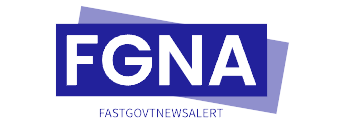
If you’ve ever wondered how top-tier research in Canada gets off the ground, it’s thanks to the Tri-Agency funding programs—NSERC, CIHR, and SSHRC. These grants provide crucial financial support for research in science, health, and the humanities. Whether you’re a student looking to fund your education or a professor aiming to launch a major research project, knowing how these grants work can open a lot of doors.
Whether you’re a student looking to fund your studies or a professor seeking resources for innovative projects, understanding these grants can open doors to incredible opportunities.
NSERC, CIHR, and SSHRC Grants in Canada 2025
| Topic | Details |
|---|---|
| Undergraduate Awards | $6,000 wage subsidy for hiring undergraduates; apply through professors |
| Graduate Scholarships | Increased Master’s scholarships: $27,000/year starting 2025 |
| Partnership Grants | Up to $500,000 annually for long-term collaborations |
| AI Collaboration Grants | Joint Canada-France call; up to $300,000 over 3 years |
| Indigenous Research | Expanded Indigenous Scholars Awards; new CIHR-led initiatives launching summer 2025 |
Securing funding from NSERC, CIHR, or SSHRC can transform your research journey. By understanding the available grants, preparing strong applications, and staying informed about deadlines, you can unlock opportunities that drive innovation and impact.
Whether you’re an aspiring undergraduate researcher or a seasoned academic, these grants are designed to empower you. Start exploring today—and take the first step toward making your research dreams a reality.
Why Are NSERC, CIHR, and SSHRC Grants Important?
Research fuels innovation, but it doesn’t happen without funding. Imagine trying to bake a cake without flour or sugar—researchers need resources like equipment, data, and salaries to bring their ideas to life. The Tri-Agency grants are designed to help researchers at all career stages, from undergraduate students to seasoned professors.
- NSERC (Natural Sciences and Engineering Research Council) focuses on science and engineering innovations that improve our world.
- CIHR (Canadian Institutes of Health Research) funds health-related research, tackling challenges like cancer, mental health, and aging.
- SSHRC (Social Sciences and Humanities Research Council) supports projects that explore human behavior, culture, and society.
Together, these agencies ensure that Canada remains a global leader in research and innovation.
Understanding the Types of Grants Available
Before applying, it’s essential to understand the different types of grants offered by each agency. Here’s a breakdown:
A. For Undergraduates
Are you a university student eager to get hands-on research experience? The NSERC/SSHRC/CIHR Undergraduate Student Research Awards offer a $6,000 wage subsidy for professors to hire you as a research assistant. This is an excellent way to build your resume while contributing to meaningful projects.
Example: Sarah, a biology major, used her NSERC award to study climate change impacts on local ecosystems. Her work not only boosted her skills but also helped secure future funding for her professor’s lab.
B. For Graduate Students
The Canada Graduate Scholarships (CGS) program is a game-changer for Master’s and PhD students. Starting in 2025, Master’s scholarships will increase to $27,000 annually, providing much-needed financial stability.
Tip: Start preparing your application early! Deadlines like September 16, 2024, for doctoral applications come quickly.
C. For Professors and Researchers
Professors and senior researchers can access larger grants for ambitious projects. For example:
- SSHRC Partnership Grants provide up to $500,000 annually for collaborative research spanning 4–7 years.
- SSHRC Insight Development Grants offer between $7,000 and $75,000 for short-term projects.
Story: Dr. Lee, a historian, secured an Insight Development Grant to digitize rare documents from the 19th century. His project now serves as a resource for scholars worldwide.
Read Also: Canada Graduate Scholarships Master’s (CGS-M) 2025
Preparing Your Application
Applying for grants may seem daunting, but breaking it into steps makes the process manageable. Follow these tips:
1. Read the Guidelines Carefully
Each grant has specific eligibility criteria and requirements. For instance, CIHR emphasizes health-related research, while SSHRC focuses on social sciences and humanities.
2. Build a Strong Proposal
Your proposal should clearly outline:
- The problem you’re addressing
- How your research will contribute to the field
- A detailed budget
Pro Tip: Use visuals like charts or graphs to make your proposal stand out.
3. Seek Feedback
Before submitting, ask colleagues or mentors to review your application. Fresh eyes can catch errors and suggest improvements.
Step 3: Submitting Your Application
Once your proposal is polished, submit it through the appropriate portal. Each agency uses its own system:
- NSERC: NSERC Online Services
- CIHR: CIHR Research Net
- SSHRC: SSHRC Web CV
Double-check deadlines and ensure all required documents are included. Missing even one detail could disqualify your application.
Special Focus: Indigenous Research Opportunities
In 2025, there’s a big push to support Indigenous-led research. Programs like the Indigenous Scholars Awards have expanded to include CIHR funding, and CIHR will launch new initiatives for Indigenous health research by summer 2025.
Why It Matters: Supporting Indigenous research is key to making research more inclusive and respectful of all cultures.
Also Read: How to Apply for University of Guelph Scholarships
FAQs on NSERC, CIHR, and SSHRC Grants
Q1: Can international students apply for these grants?
A1: Generally, no. Most grants require Canadian citizenship or permanent residency. However, international students can collaborate with eligible applicants.
Q2: What if my application is rejected?
A2: Don’t give up! Review the feedback and improve your proposal for the next round. Persistence can lead to success.
Q3: Are there grants for AI research?
A3: Yes! The NSERC-SSHRC-CIHR AI Collaboration Grants offer up to $300,000 over three years for joint Canada-France AI projects.
















